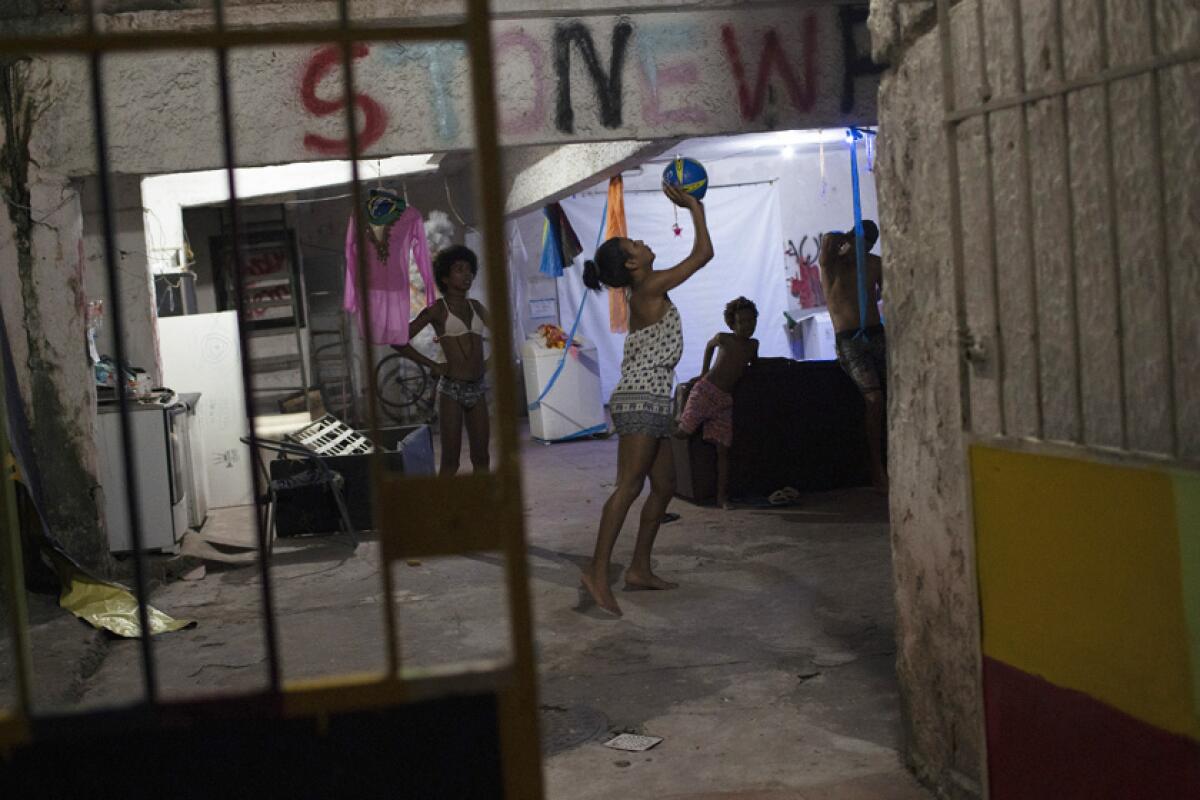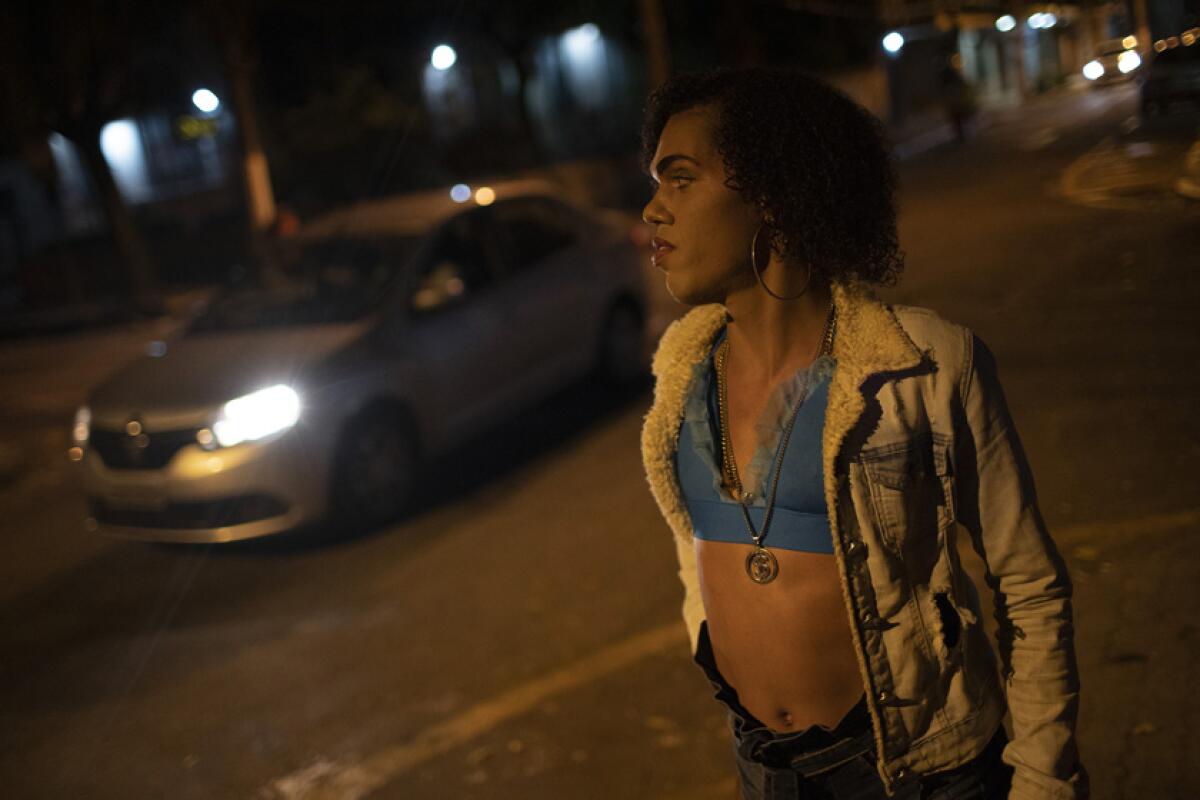Brazil LGBTQ group hides from virus in Copacabana building

- Share via
RIO DE JANEIRO — In a courtyard a few blocks from Rio de Janeiro’s Copacabana beach, a dozen people get settled on broken couches beneath a banner reading, “Cure Your Prejudice.” They face the makeshift stage where a transgender woman appears in a short, tight dress and performs to a song about transgender visibility.
It’s a standard Saturday night in coronavirus times at the squat known as Casa Nem.
The six-floor building is home to about 50 LGBTQ people riding out the pandemic behind closed doors. They receive food donations and are barred from leaving unless facing medical emergency or other exceptional circumstances. Self-imposed lockdown is one of few ways this traditionally marginalized group has found to minimize COVID-19 risks, while others remain vulnerable on the streets.
“Based on the experience we had during the AIDS epidemic, when we were accused of being the vector of the virus and were left to die, we are now protecting the community,” said Indianara Siqueira, 49, a transgender sex worker and activist who leads Casa Nem.
In 2016, her organization took over the building with small bedrooms, shared bathrooms and a big common kitchen. The residents found it dirty and abandoned, including one room with artwork, bronze busts and taxidermy. Casa Nem became a shelter for LGBTQ victims of violence and those who, rejected by their families, have nowhere to live.

New residents during the pandemic have to isolate on one of the building’s floors for 15 days to ensure they don’t develop symptoms before fully joining the community.
While some found refuge at Casa Nem, others like transgender prostitute Alice Larubia, 25, are stuck on the streets, hustling to earn enough to get by as the economy tanks. Normally quick to smile and joke, Larubia grows serious when discussing her future after the pandemic. She wants out of prostitution, and likes the idea of working in a beauty salon.
Data from Brazil’s National Cross-dresser and Transgender Assn. show that about 90% of the people it represents are sex workers due to lack of opportunities and discrimination in the job market.
After a month quarantining at home with some financial support from family, Larubia resumed work in Niteroi, a city across the bay from Rio.
Brazilian President Jair Bolsonaro, who has long downplayed the coronavirus, says he has COVID-19. More than 65,000 Brazilians have died from the disease.
“Necessity spoke louder [than the pandemic] and I had to come back to the street,” Larubia said while waiting for clients with a small group of colleagues.
She keeps hand sanitizer in her purse and wears a mask on public transport, but said she can’t while working. She earns around $15 per night, less than half her payday before the onset of the outbreak.
“I’m scared,” she said. “I know I’m at risk.”
Back at Casa Nem, residents spend their days cooking and chatting, playing games and organizing workshops. They’re eager to leave the building, once it’s safe.
“We have increased our activities to help our psychological state,” said Micaelo Lopes, a 22-year-old transgender man. “It’s a very tense moment where we are waiting to see what’s going to happen afterward, without really knowing.”
More to Read
Sign up for Essential California
The most important California stories and recommendations in your inbox every morning.
You may occasionally receive promotional content from the Los Angeles Times.











